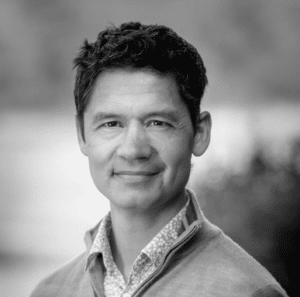In the first of a series of articles and webinars, Professional Paraplanner is working with mental health specialist Patrick Melville, as part of a wellbeing programme, to look at issues such as stress and anxiety within the workplace. Patrick begins by asking how we interpret the words mental health and how that plays into our working lives.
In association with Fidelity Adviser Solutions.
When you hear the words ‘mental health’, what springs to mind? Words are a type of signal that our minds use to understand our situation and environment. When we encounter spoken and written words, these signals lead to positive, negative and neutral thoughts and feelings.
Interpreting signals would be much easier if our minds were only required to manage one signal at a time. However, every signal presents us with a high volume of cognitive and non-cognitive information. According to Britannica’s definition of physiology our senses “gather some 11 million bits per second from the environment”.
As a paraplanner you encounter numerous signals during a typical day. Perhaps you receive an email from an adviser which requires urgent action, before having to respond to a research request for an investment committee meeting, and then you are told that a document deadline has been brought forward by two days……
Our minds are unique. They are built by our own nature and nurture experiences, which include our genetics, background, social and cultural environment, major life events and work experiences.
The phrase ‘mental health’ has come to the fore in recent years, but how well do we understand its meaning? It is crucial that we appreciate people’s psychological, emotional and social wellbeing if we are to carry out our daily tasks. Those who misconstrue the true meaning of the words ‘mental health’ run the risk of creating stigmas, misunderstandings and unhelpful thoughts and behaviours.
Professional Paraplanner is running a wellbeing programme throughout the rest of 2023. One of the programme’s goals is to normalise the understanding of the words associated with mental health. Try this simple task – take 30 seconds to answer the question: ‘Are the words ‘mental health’ a
1) positive statement
2) neutral statement or
3) negative statement?’
The website https://www.mentalhealth.gov/ offers a clear definition:
“Mental health includes our emotional, psychological, and social well-being. It affects how we think, feel, and act”.
This is a neutral statement; despite any feelings this might provoke! Once we understand these words, we can acknowledge the meaning of the other phrases: ‘Positive’ means ‘healthy’, and ‘negative’ means ‘ill’.
All paraplanners have their own mental health which is unique and changing all the time.
Another useful task is by visiting Google’s Image page and seeing what happens when you enter the words ‘mental health’ and ‘physical health’. There is a marked disparity between the images which can drive a lack of understanding. The search for images representing mental health produces more negative pictures, while a search for images signifying physical health reveals more positive ones. It’s important to remember that ‘mental health’ and ‘physical health’ are neutral phrases.
Normalising the phrase ‘mental health’ is one of the first steps forward to finding suitable positive approaches to self-care and support colleagues.
A good mental health approach helps to manage the daily stresses and performance challenges. According to the Mental Health Foundation ‘good mental health’ is when “we feel good inside. We might feel calm or content, peaceful, hopeful and accepting of ourselves and valued by the people who matter to us”.
The Professional Paraplanner wellbeing programme will include conducting research to understand paraplanners’ current knowledge and methods around wellbeing and mental health. The results, gathered through the monthly Para-meters survey, will be anonymous and used in the Professional Paraplanner programme to share ways to empower paraplanners towards achieving positive mental health and achieving their goals. The programme will input to Professional Paraplanner articles, webinars and live events.
We hope you take part to continue the learning about driving more positive mental health in the industry.
Sources:
- (https://www.britannica.com/science/information-theory/Physiology).
- (https://www.mentalhealth.org.uk)






























